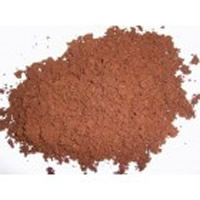Raspberry Purchase & Information

Alternative Names
Red Raspberry, European Raspberry, Black Raspberry, Blackcap Raspberry
Scientific Name
Rubus Idaeus
Why Do People Use Raspberry?
Oral preparations of Rubus idaeus (Raspberry), like raspberry powder, are used as typical medicine in order to treat a number of diseases such as cold sores, canker sores, for leg cramps, gingivitis in people of all ages as well as to treat anemia, morning sickness in pregnant women, for diarrhea and as a uterine relaxant. There is very less amount of sodium, saturated Fat and cholesterol in this fruit. It is also a rich source of magnesium, Vitamin K as well is as a very good source of vitamin C, dietary fiber and manganese.
Is It Safe To Use?
Raspberry leaves are thought to improve the hormonal and fertility balance. Still, doctors do not advice to use raspberry powder in early days of pregnancy. However, more confirmations are required to know more about the effectiveness and side effects of raspberry preparations.
Before using leaves of raspberry or drinking its leaves tea, pregnant females must consult their doctors about some important precautions.
How Effective Is Raspberry?
Rubus idaeus is extremely rich in a variety of essential anti-inflammatory and anti-oxidant phytonutrients. The chemicals in red raspberry may have antioxidant effects and may help improve the health of blood vessels. They may also cause contraction or relaxation of the muscles, depending on the type of muscle and dose involved. This is no such report behind red raspberry’s use to get relief from labor and delivery pain.
How Raspberry Works?
Rubus idaeus is extremely rich in phenolic compounds and vitamin C. Some of these compounds include, cyanidin-3-(2(G)-glucosylrutinoside), anthocyanins cyanidin-3-sophoroside, cyanidin-3-glucoside, lambertianin C and ellagitannins sanguiin H-6. In addition, raspberry powder is extremely rich in ellagic acid, flavonols and hydroxycinnamate. Polyphenolic compounds from raspberry seeds are efficient antioxidants.
What Are The Side Effects /Adverse Reactions of Raspberry?
A large amount of the calories present in foods are obtained from sugars. Raspberry leaves and roots may be mild laxatives. Therefore, such consumption of raspberry may result in increase of sedative effects and urine flow. Methadone diluted with contaminated raspberry syrup may be possible source of candidiasis in drug abusers.
How Raspberry Interacts With Other Herbs and Supplements?
Reports suggests that raspberry powder may have anti-biotic effects. Raspberry consists of antioxidants effects as well. Theoretically, raspberry may interact and give desired results with supplements & herbs that also have antioxidant or antibiotic effects. To avoid severe side effects, patient must take advice from his/her physician.
Raspberry leaves and roots may act as diuretics and enhance the urine flow of individuals. Patients taking such supplements & herbs that build the urine flow ought to utilize raspberry after proper recommendation of physician. Raspberry might also have diuretic properties and care should be taken with different type of supplement & herbs with these impacts, for example, psyllium.
Specific extract of dried raspberry leaves may help in calming the muscles. Patients using supplements & herbs that may have relaxing, sedative or antispasmotic effects should use raspberry powder with caution.
Raspberries may also consist of salicylates. Caution should be observed when taking with supplements and herbs that contain high quantity of salicylates, for example, willow bark.
How Raspberry Interacts With Drugs?
Recent studies claim that raspberry powder has antibiotic activity and may have additive effects when used with clarithromycin. Therefore, patient are advice to use it after the recommendations of their physician.
Studies also confirm that raspberry powder has anti-oxidant effects. Therefore, physician’s recommendations are advised for patient taking different medications that also have antioxidant effects.
Raspberry leaves and roots may be a mild diuretic and enhance the urine flow. Patients taking medicines that enhance the urine flow, for example, chlorothiazide (Diuril®) or bumetanide (Bumex®) should utilize raspberry after doctor’s advice. Raspberry may also have laxative properties and care should be taken while using it with other laxatives.
Specific extract of dried raspberry leaves may be helpful in relaxing the muscles. Patients taking medications that may have relaxing, sedative or antispasmotic effects, should use raspberry preparations after physician’s advice.
Clinical studies propose that raspberries also contain salicylates. Care should be taken while using high amounts of salicylates, for example, aspirin.
How Raspberry Interacts With Foods?
Not known.
How Raspberry Interacts With Lab Tests?
Not known.
How Raspberry Interacts With Diseases and Conditions?
Not known.
What Should Be the Dose/Administration of Raspberry?
No typical dosage for raspberry.
Comments
None.
General Certificate of Analysis (COA)
Specification sheet links below are a standard copy of the COA less the batch or lot number and manufactures dates. Specification sheet can be dated and should only be considered as a general information. Please contact and request an up to date COA if needed for specific updated information before placing order by filling out the contact form with product name and SKU number. If ordering quantities of twenty five kilos or more contact for availability.
